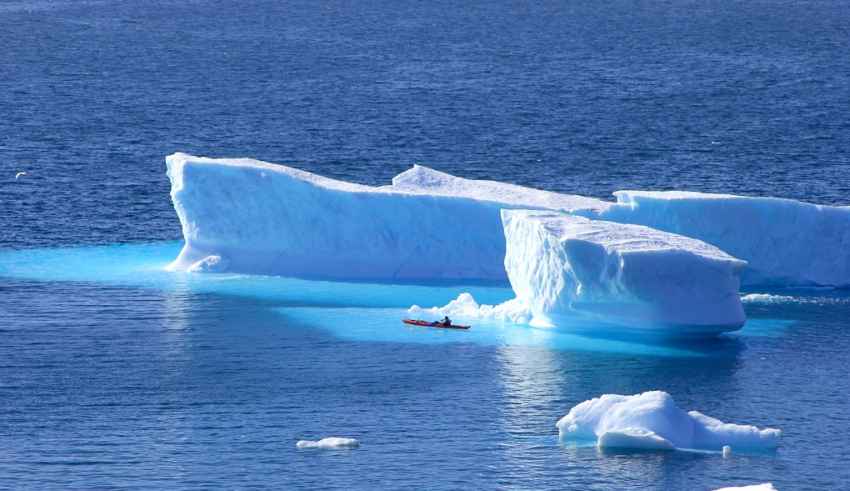
The Arctic is the northernmost region of the planet. Although there is no clear definition of what should be considered part of it, the majority of scientists define the region within the Arctic Circle, a line of latitude about 66.5° north of the Equator. There are several countries inside the circle: The United States, Canada, The Kingdom of Denmark, Iceland, Norway, Sweden, Finland, and The Russian Federation. These countries are eagerly trying to increase their presence in the Arctic region. The question, of course, why is that? There are many answers to this question.
Strategic importance
First, as the Earth’s surface temperature is getting warmer, the Arctic sea ice extent is declining, making shipping through the region much more feasible. There are three sea lanes in the Arctic: The North-West Passage – the line along with the US’ and Canada’s cost –, the Northern Sea Route – the lane along with Russia’s cost – and the Transpolar Sea Route – a route that goes directly through the region. The third option will probably not be available for a long time due to the thick ice level; however, the first two are on their way to becoming economically viable shipping routes. The amount of money, time, and energy that can be saved can be described with one word: astonishing. The Northern Sea Route, for example, has the potential to save almost 20 days off the shipping time now spent traveling through the Suez Canal.
Second, the Arctic region is full of natural resources. The region is abundant in minerals, such as iron ore, coal, zinc, nickel, lead, diamonds, among others. There are an estimated 90 billion barrels of oil and 1,700 trillion cubic feet of natural gas. On top of that, 44 billion barrels of natural gas liquids may remain to be discovered in the Arctic – including both US and international resources north of the Arctic Circle. To put that into context, that is approximately 13% of the world’s undiscovered conventional oil resources and 30% of natural gas.
Third, the Arctic region served as a buffer zone between North America and Russia for a long time. As the amount of ice is decreasing in the region, economic activities and military activities are increasing. Russia has been increasingly militarizing the Artic since 2014. The Russia–Ukraine war has clearly demonstrated that war is still very much possible between nations. For that reason, Russia’s militarization of the Arctic region and its strategic advantage there should not be downplayed.
What should NATO and European Union countries do?
As Russia and the People’s Republic of China are adopting a partnership where are “no limits”, the West should stick together. So far, NATO and the European Union have shown remarkable partnership and trust in one another. Thanks to the extraordinary coordination between democracies, the West has been able to isolate the aggressor on the world stage. The argument can be made that such partnership should be adopted elsewhere, in this case, in the Arctic region.
The region heavily lacks transportation systems, communication networks, and systems that provide energy. The European Union and NATO countries could coordinate how to allocate resources in the region. In this way, the resources would not be wasted, and the payoffs of the investment could be maximized. Western countries should also coordinate better when it comes to technological transfer, working together with native communities, building icebreaker ships – which are crucial to navigating in the region – and even creating a long-term strategy.
The idea that Russia’s hostility will stop after the war with Ukraine is ill-conceived. Until the current regime is in power, international laws and norms will not be respected by the Kremlin. The West should continue what it has already started and coordinated in other regions, such as the Arctic. The region’s importance will only grow in the coming decades, and letting an authoritarian country have a strategic advantage would be a mistake.
Source:
https://www.nationalgeographic.org/encyclopedia/arctic/
https://www.bbc.com/news/business-45527531
https://sgp.fas.org/crs/misc/R41153.pdf
By The European Institute for International Law and International Relations.















